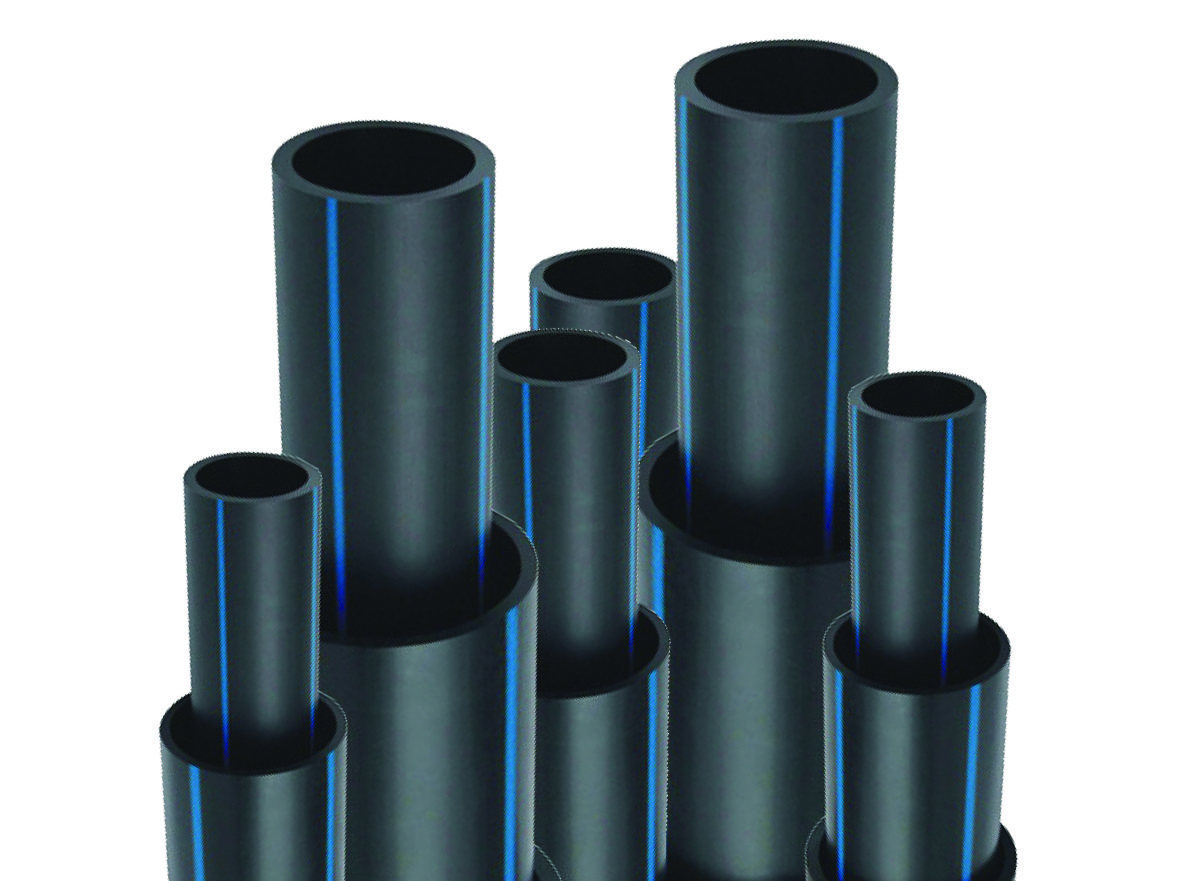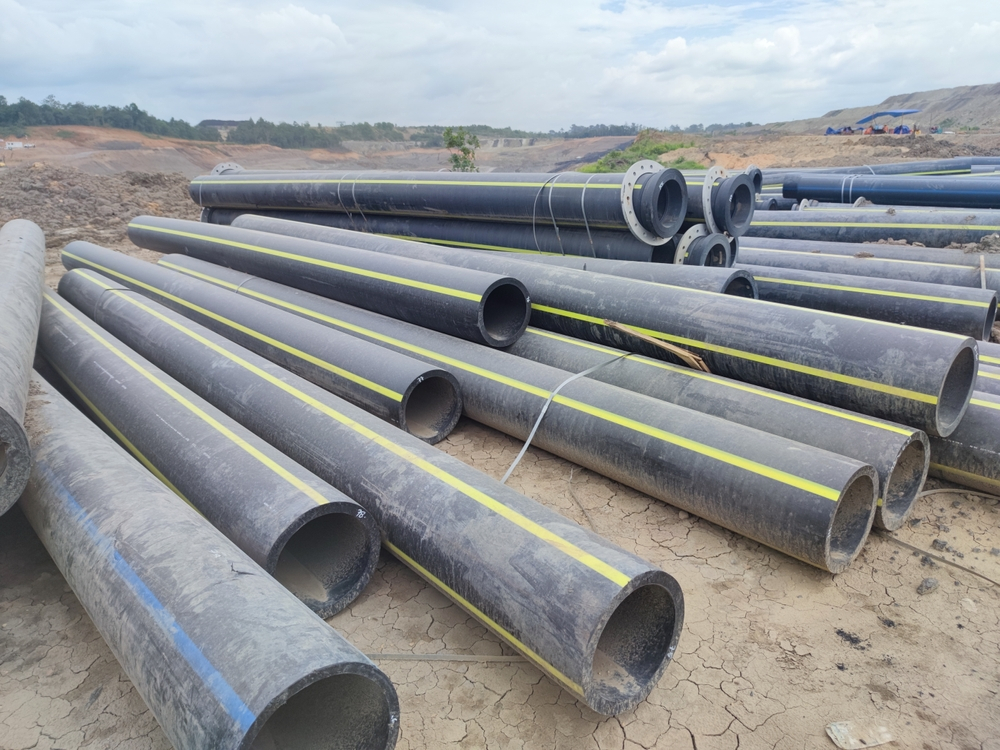Exploring American Plastics HDPE Pipe Manufacturing and Its Impact in Modern Infrastructure
Wiki Article
A Comprehensive Guide to the Numerous Uses HDPE Pipe in Building And Construction and Sector
HDPE pipes have actually emerged as a crucial element in modern-day building and construction and industrial applications. Their distinct properties, such as resistance to rust and light-weight style, make them appropriate for a large range of uses. From supply of water systems to agricultural irrigation, HDPE pipes use solutions that boost performance and sustainability. Understanding their varied applications is necessary for specialists aiming to enhance infrastructure. What certain benefits do these pipelines bring to each sector?Water and Circulation Solutions
Water and distribution systems are critical components of urban infrastructure, often counting on high-density polyethylene (HDPE) pipelines for their toughness and efficiency. These systems transport drinkable water from treatment facilities to consumers, guaranteeing availability and safety and security. HDPE pipelines are favored for their resistance to deterioration, chemicals, and severe temperature levels, which improves their longevity and minimizes maintenance expenses. Furthermore, their light-weight nature permits less complicated installation and transport, making them suitable for numerous metropolitan and country applications.The adaptability of HDPE pipes allows them to be set up in limited areas and around challenges, reducing the requirement for extensive excavation (American Plastics HDPE Pipe for Oilfield). In addition, their smooth indoor surface area reduces friction losses, boosting water circulation prices. As cities proceed to grow, the demand for dependable water system systems increases, placing HDPE pipelines as a lasting remedy for modern-day infrastructure jobs. Their tested track document makes them a preferred choice amongst designers and city planners alike
Wastewater Administration and Treatment
Efficient wastewater monitoring and therapy are necessary for maintaining public health and wellness and environmental high quality. HDPE pipes play a crucial duty in this procedure as a result of their durability, resistance to deterioration, and ability to endure severe chemicals. These pipes are generally used in numerous applications, consisting of sewer systems, stormwater water drainage, and wastewater therapy facilities. Their lightweight nature helps with easier installation and transportation, decreasing labor prices and time.In addition, HDPE pipes have a smooth interior surface that reduces rubbing loss, advertising effective circulation rates. They are additionally less vulnerable to leaks and failings compared to conventional products, making certain that pollutants are included effectively. Furthermore, their versatility enables versatility in numerous soil conditions, making them suitable for diverse ecological setups. As markets significantly focus on lasting techniques, using HDPE pipelines in wastewater administration systems aligns with goals for minimizing ecological effect and improving source recovery.
Agricultural Irrigation Solutions
In farming setups, efficient watering remedies are crucial for optimizing crop yields and handling water sources. HDPE (High-Density Polyethylene) pipes play an essential role in contemporary irrigation systems because of their durability, flexibility, and resistance to corrosion. Their ability to withstand high stress makes them ideal for both surface area and subsurface watering applications, ensuring uniform water circulation across fields.Farmers can utilize HDPE pipes in drip watering systems, which supply water straight to plant roots, minimizing wastage and advertising healthy and balanced growth. Furthermore, these pipelines are light-weight and simple to mount, decreasing labor prices and installation time. Their lengthy life expectancy and reduced upkeep needs even more enhance their allure in farming techniques.
In addition, HDPE pipelines are environmentally friendly, as they can be recycled and helpful resources do not seep hazardous chemicals into the soil. This makes them a sustainable selection for farmers intending to adopt environment-friendly agricultural approaches while making the most of performance.
Industrial Applications and Procedures
Versatility is a hallmark of HDPE pipelines, making them crucial in various commercial applications and processes. These pipes are commonly used in chemical handling sectors due to their superb resistance to a vast array of destructive materials. HDPE's light-weight nature, integrated with high tensile strength, allows for easy installation and lasting efficiency popular atmospheres.In the oil and gas industry, HDPE pipelines play a crucial function in transferring hydrocarbons and gases, thanks to their resilience and flexibility - American Plastics HDPE Pipe for Oilfield. Furthermore, they are employed in mining procedures for the transport of slurry and various other products, where conventional piping systems might fail
HDPE pipes are progressively utilized in making centers for water supply lines and wastewater management. Their ability to withstand severe temperatures and stress makes them ideal for a selection of industrial procedures. On the whole, HDPE pipelines add substantially to performance and safety throughout varied commercial applications.
Stormwater Management and Drain Systems
close nipple 3 4 Stormwater administration and drain systems are vital components in city framework, created to handle excess rains and minimize flooding risks. High-density polyethylene (HDPE) pipes are progressively made use of in these systems as a result of their durability, versatility, and resistance to rust. These pipelines successfully transfer stormwater far from booming areas, lessening surface runoff and preventing waterlogging.HDPE's lightweight nature helps with easier installation, lowering labor costs and construction time. Furthermore, its resistance to chemicals and ecological stressors warranties durability and reliability in different climates. Along with conventional drainage applications, HDPE pipes are additionally used in ingenious options such as eco-friendly facilities, which includes rainfall yards and permeable sidewalks.

Regularly Asked Inquiries
How Does HDPE Pipe Compare to PVC Pipe in Cost?
Generally, HDPE pipeline tends to be more pricey than PVC pipeline because of its improved longevity and adaptability. Long-lasting cost factors to consider, such as maintenance and life-span, might favor HDPE in particular applications.What Is the Life Expectancy of HDPE Piping Under Diverse Problems?
HDPE pipes normally have a lifespan of 50 to 100 years, depending on ecological problems, setup techniques, and use. Variables such as temperature level, dirt kind, and direct exposure to chemicals can substantially influence their toughness.Can HDPE Water Lines Be Recycled After Usage?
Yes, HDPE pipes can be recycled after usage. The reusing process entails thawing down the material, allowing it to be repurposed right into brand-new items, therefore promoting sustainability and minimizing environmental effect associated with plastic waste.Are There Any Kind Of Specific Installment Challenges With HDPE Pipes?
Installation challenges with HDPE pipes consist of correct jointing discover this strategies, making sure appropriate trench conditions, and managing thermal growth. Furthermore, competent labor is needed to handle customized devices, which can make complex the setup procedure in numerous settings.
What Accreditations Should I Try To Find When Acquiring HDPE Pipelines?
When acquiring HDPE pipelines, one ought to try to find certifications such as ASTM, AASHTO, and ISO, which verify quality and conformity with industry requirements, ensuring sturdiness and performance in numerous applications. - hdpe pipe suppliers Midland TXReport this wiki page